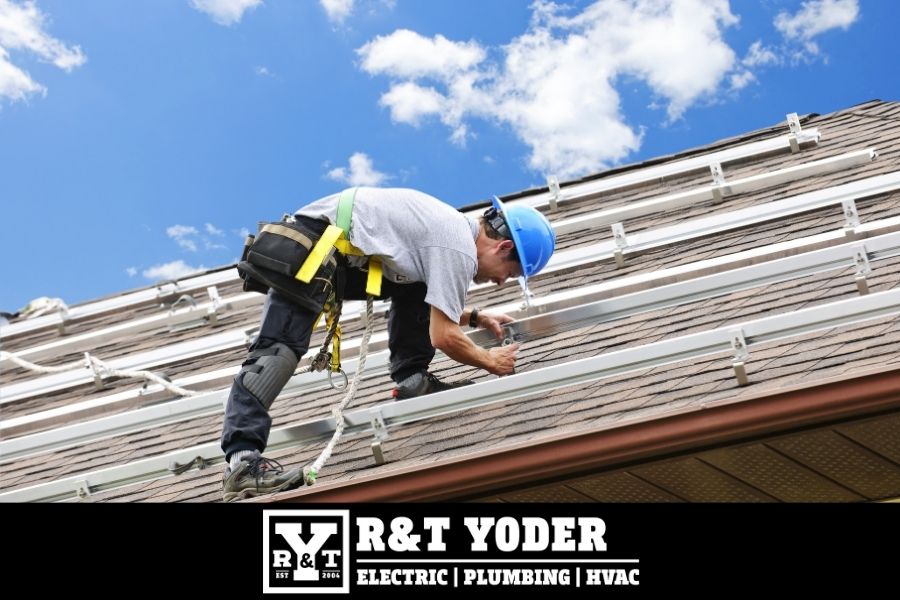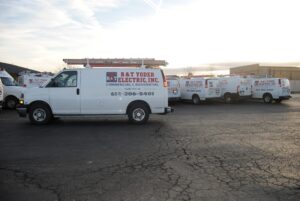
When it comes to electrical work in your home, choosing the right contractor is essential. Properly functioning electrical systems are not only necessary for convenience but also critical for safety. Whether you’re renovating a room, adding new outlets, or upgrading your home’s wiring, hiring a qualified and experienced electrical contractor ensures the job is done correctly. This guide provides valuable insights into how to choose the right electrical contractor and why DIY electrical work is not recommended.
Why DIY Electrical Work Isn’t the Best Option
While DIY projects are appealing for their cost savings, electrical work should always be handled by professionals. The risks associated with electrical work are substantial and can have far-reaching consequences.
1. Electrical Hazards
Electrical systems involve high voltage and complex circuitry, which, if not properly handled, can lead to severe injury or even death. Incorrect installation or wiring can result in electrocution, fires, or short circuits. For example, an improperly wired outlet could cause an electrical fire, putting your home and family at risk.
2. Code Compliance
Electrical work is regulated by strict building codes that vary depending on your location. DIY electrical projects are likely to fail to meet these codes, leading to potential legal consequences and problems when selling or refinancing your home. A licensed contractor will ensure all work complies with the National Electrical Code (NEC) and any local codes.
3. Warranty and Insurance Issues
Many electrical components, appliances, and home insurance policies require installation by licensed professionals to maintain their warranties and coverage. DIY electrical work may void these warranties, leaving you financially liable for any problems. Professional contractors are insured, meaning they carry liability coverage and workers’ compensation, providing peace of mind in case something goes wrong.
What to Look for in an Electric Contractor
Choosing the right electric contractor for your home project requires careful consideration. There are a few essential factors that set reliable, skilled contractors apart from the rest.
1. Proper Licensing and Certification
A licensed contractor is an absolute necessity for ensuring that all electrical work is done to code and safely. In most areas, electricians are required to be licensed to perform electrical work. A licensed professional demonstrates that they have the necessary training, education, and experience to handle complex electrical systems. Furthermore, ensure the contractor carries all relevant certifications and insurance policies, including liability and workers’ compensation.
2. Experience and Expertise
Experience matters when it comes to electrical work. Contractors with several years of experience are more likely to have encountered a wide range of situations and can apply their knowledge to solve unique challenges that may arise during your project. When researching potential contractors, ask about their areas of expertise. For example, if you’re upgrading your home’s electrical panel, look for contractors who specialize in panel upgrades or have experience with similar projects.
3. Reputation and Reviews
Check online reviews and ask for references to evaluate a contractor’s reputation. Reviews on platforms such as Google, Yelp, or the Better Business Bureau (BBB) can offer valuable insight into the quality of a contractor’s work and customer service. Word-of-mouth recommendations are also an excellent resource. Contractors with consistently positive feedback are more likely to deliver satisfactory results.
4. Transparent Pricing
A trustworthy electrical contractor should provide a clear, written estimate before starting any work. This should detail the cost of materials, labor, and any additional fees. Be wary of contractors who provide vague or unusually low estimates, as they may be cutting corners or may not be as experienced. A reputable contractor will offer competitive pricing while ensuring the work is done safely and professionally.
5. Communication and Professionalism
Good communication is key to a successful project. Choose a contractor who listens to your needs, provides clear explanations, and communicates effectively throughout the project. They should be responsive to your questions and concerns and be willing to explain the process in simple terms. Professionalism is also important – the contractor should show up on time, maintain a clean work environment, and complete the work within the agreed-upon timeframe.
6. Availability and Timeliness
Consider the contractor’s availability when scheduling your project. Electricians with a busy schedule may not be able to dedicate enough time to your project or might cause delays in completion. On the other hand, if a contractor is available immediately, it could be a red flag. It’s important to balance promptness with quality to ensure the job is done correctly.
The Different Types of Electrical Contractors
Not all electrical contractors are the same. It’s important to understand the types of contractors and their areas of specialization to choose the right one for your needs.
1. Residential Electricians
These contractors specialize in electrical systems for homes. They handle everything from installing lighting and outlets to upgrading electrical panels or rewiring entire homes. Residential electricians are ideal for projects that involve general electrical work or repairs within your home.
2. Commercial Electricians
Commercial electricians focus on larger electrical systems for businesses, offices, and other commercial properties. While they have similar skills to residential electricians, they are trained to handle more complex systems and may not always be the best fit for a standard home project. However, for larger or more specialized projects, such as wiring new home construction or installing large appliances, commercial electricians might be the right choice.
3. Industrial Electricians
Industrial electricians typically work with large-scale electrical systems in factories, power plants, and other industrial settings. While they are experts in heavy-duty electrical systems, their services might not be needed unless you have a specific industrial-related electrical need.
How to Vet Electric Contractors
Once you’ve identified a few potential contractors, it’s important to vet them properly before making your choice. Here are several steps to take
1. Check License and Insurance
Confirm that the contractor is licensed to perform electrical work in your state or locality. Most jurisdictions require electricians to pass a certification exam to ensure they are competent in their trade. Verify that the contractor has up-to-date insurance coverage, including general liability and workers’ compensation, to protect both you and their team.
2. Ask for References
Request references from previous clients who had similar work done. This will give you insight into the contractor’s skill, reliability, and work ethic. If possible, contact these references directly to inquire about their experience.
3. Get Multiple Quotes
It’s a good idea to get quotes from at least three different contractors. This will help you compare pricing and determine if any of the estimates seem too high or too low. Ensure the quotes include a detailed breakdown of labor, materials, and any additional costs.
Red Flags to Watch Out For
While many contractors are trustworthy and professional, there are a few red flags to look out for when hiring an electrical contractor
1. Unlicensed Contractors
If a contractor is unwilling or unable to provide proof of licensing, it’s best to walk away. Hiring an unlicensed contractor can result in substandard work and potential safety hazards.
2. Vague or Unclear Estimates
Beware of contractors who give vague or unclear pricing information. A reputable contractor should provide a comprehensive, written estimate outlining costs and services in detail. This helps avoid unexpected charges and ensures both parties are on the same page.
3. Poor Communication
If a contractor is difficult to reach, doesn’t respond to calls or emails promptly, or has trouble explaining things clearly, this could signal poor communication skills, which may result in a subpar experience.
Choosing the right electrical contractor for your home project is critical to ensuring safety, quality, and value. By researching the contractor’s credentials, checking their references, and comparing quotes, you can confidently hire the right professional for the job. Remember, electrical work is not a DIY task – the risks associated with improper installation are simply too high. Always prioritize licensed, experienced professionals who are dedicated to delivering safe, efficient, and high-quality work. Whether it’s a small repair or a large renovation, hiring the right electrical contractor will ensure that your project is completed correctly, safely, and within your budget.







